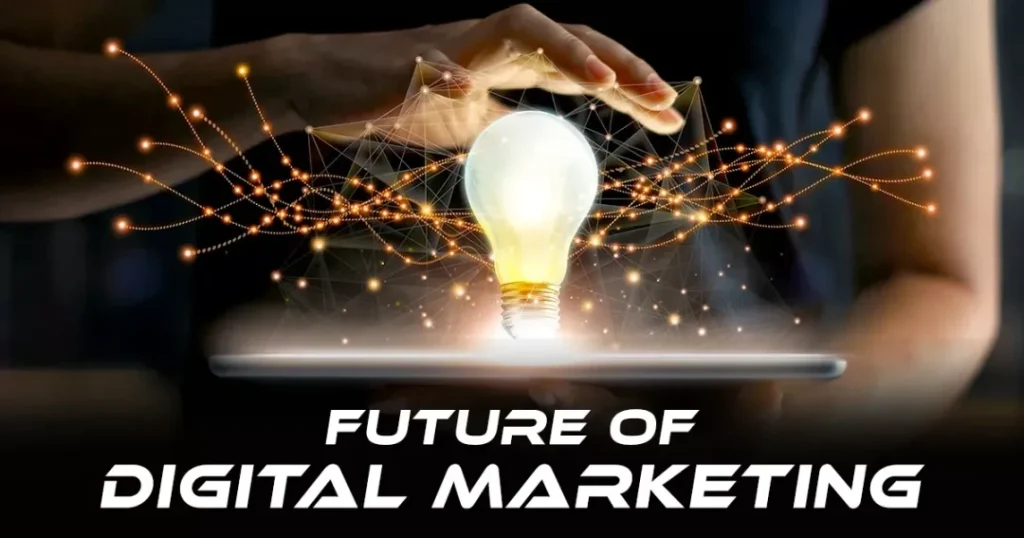
The Future of Digital Marketing
As digital marketing continues to evolve, staying ahead of emerging trends and adapting to new technologies is crucial for businesses aiming to maintain a competitive edge. The Future of Digital Marketing promises to be shaped by several transformative trends and innovations. For a digital marketing freelancer, understanding these trends is essential to delivering cutting-edge strategies and solutions to clients. Let’s explore what lies ahead and how these developments will influence the strategies of tomorrow.
1. The Rise of Artificial Intelligence
The Future of Digital Marketing is increasingly intertwined with the rise of Artificial Intelligence (AI). AI technologies, including machine learning and natural language processing, are becoming more sophisticated, enabling more precise data analysis and automation. Businesses will leverage AI to enhance customer experiences through personalized recommendations, predictive analytics, and chatbots. These tools will not only streamline marketing operations but also provide deeper insights into consumer behavior, allowing for more targeted and effective campaigns.
2. Hyper-Personalization Takes Center Stage
In an age where consumers expect tailored experiences, The Future of Digital Marketing highlights that hyper-personalization is emerging as a critical trend. Advances in data analytics and customer segmentation are enabling brands to deliver highly customized content and offers. By analyzing individual preferences and behaviors, businesses can create more relevant interactions that resonate with their audience. This shift towards hyper-personalization will drive higher engagement, improve customer satisfaction, and ultimately foster stronger brand loyalty.
3. Privacy and Data Security
As data privacy concerns grow and regulations tighten, The Future of Digital Marketing underscores the need for businesses to prioritize robust data protection measures. The implementation of stricter privacy laws, such as GDPR and CCPA, is reshaping how companies handle and safeguard consumer information. Transparent data practices and clear privacy policies will become essential for building trust and maintaining a positive brand reputation. Consumers are becoming increasingly aware of their data rights, and businesses that demonstrate a commitment to ethical data practices will gain a competitive advantage.
4. Immersive Technologies: AR and VR
The Future of Digital Marketing is also set to be revolutionized by Augmented Reality (AR) and Virtual Reality (VR), which offer immersive and interactive experiences. These technologies enable brands to engage with their audiences in novel ways, such as virtual try-ons, 360-degree product views, and interactive brand experiences. As AR and VR become more accessible and affordable, businesses will have the opportunity to create memorable and engaging marketing campaigns that captivate and delight consumers.
5. The Evolution of Social Media
The Future of Digital Marketing reveals that social media remains a powerful tool, but its landscape is constantly evolving. New platforms and features are continually emerging, and user preferences are shifting. Staying ahead of these changes and adapting strategies to leverage the latest social media trends will be crucial for brands. From exploring new platforms to utilizing advanced advertising tools, businesses will need to be agile and innovative to effectively connect with their target audiences.
6. The Growth of Voice Search and Conversational Marketing
The Future of Digital Marketing also includes the rapid advancement of voice search technology, with more consumers using voice-activated devices to conduct searches and make purchases. This trend is driving a shift towards conversational marketing, where brands engage with customers through voice assistants and chatbots. Optimizing content for voice search and developing conversational interfaces will be essential for capturing voice-driven traffic and providing seamless customer interactions.
Conclusion
The Future of Digital Marketing is brimming with exciting possibilities and challenges. As technology continues to advance and consumer expectations evolve, businesses must remain agile and forward-thinking. By embracing trends such as AI, hyper-personalization, privacy protection, immersive technologies, social media evolution, and voice search, companies can position themselves for success in the ever-changing digital landscape. Staying informed and adapting to these developments will be key to thriving in The Future of Digital Marketing.